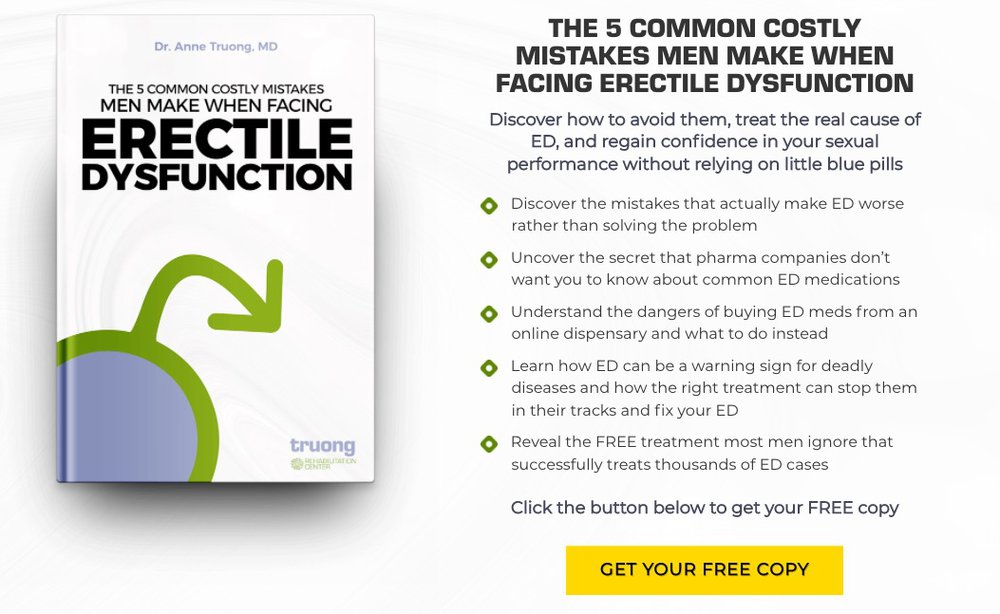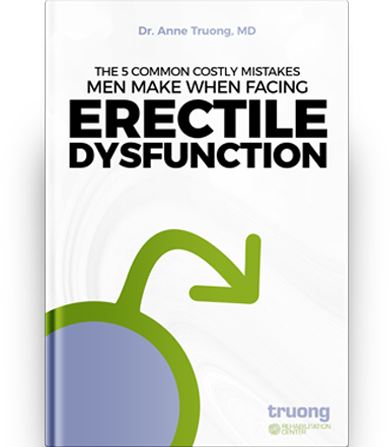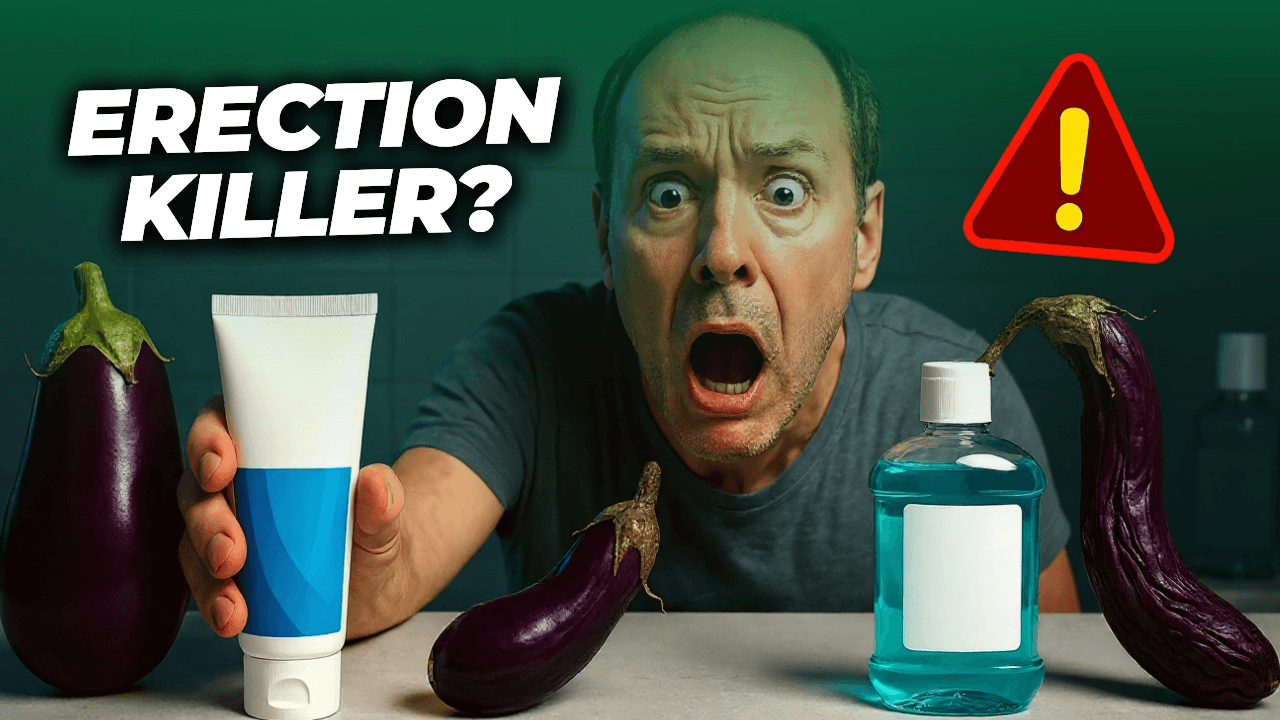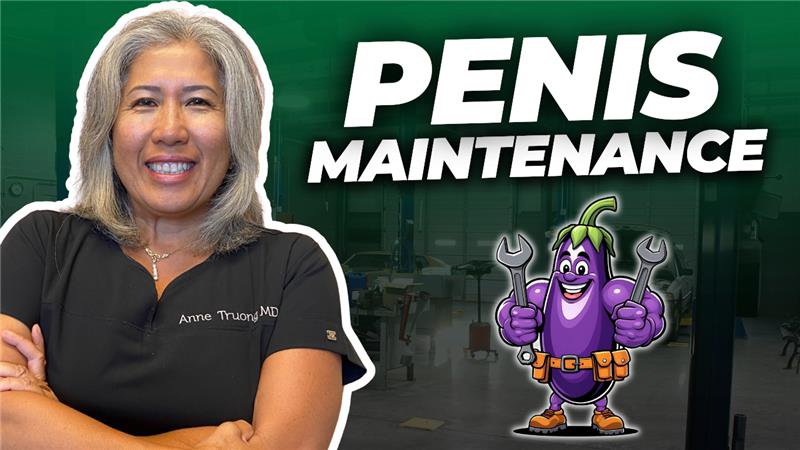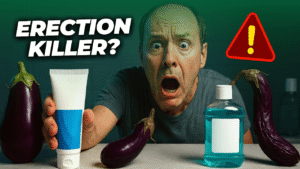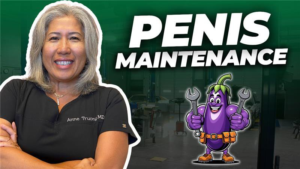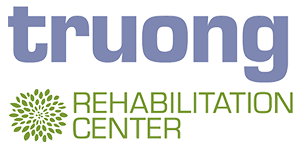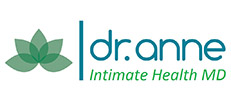Nitric oxide (NO) is a vital molecule necessary for optimal health. It functions as a vasodilator, transmitting signals to your blood vessels that cause them to relax and expand. This facilitates the circulation of blood, nutrients, and oxygen throughout your body.
Recent research has shown that nitric oxide may be able to help men with erectile dysfunction (ED).
Dive into the episode with Dr. Nathan Bryan, one of the pioneers of nitric oxide. We will discuss how nitric oxide can be used to treat ED and the potential benefits of using it as a treatment option. We will also discuss how nitric oxide works to improve erections and how it may be combined with other treatments for better results. Finally, we will cover the risks associated with taking nitric oxide supplements for ED and what you should know before trying them.
- Episode Video
- Introducing Dr. Nathan Bryan
- Understanding Nitric Oxide
- Nitric Oxide Decrease With Age?
- Measurement of Nitric Oxide Levels
- The Best Nitric Oxide Supplement
- Infrared Light To Promote NO Production?
- Organic Foods Have Less Nitric Oxide?
- Daily Nitric Oxide Requirement
- Nitric Oxide Lozenge Before Sex
- Latest Research on Nitric Oxide
- Additional Resources
Episode Video
Introducing Dr. Nathan Bryan
Dr. Anne: Well, hello there. Hello there Modern Man. I would love for you to stick around this episode because today I have Dr. Nathan Bryan.
He is a PhD, he finish his training at University of Texas, and he was one of the pioneer for nitric oxide (NO. If you've been listening to me, I've been talking about NO for a while now. He is one of the pioneer and commercialize a product on NO as well. So welcome Dr. Bryan.
Dr. Bryan: Thank you very much, Dr. Truong. It's great to be here.
Dr. Anne: I got tons of questions to ask you. But let's get to know you a little bit. So what, how did you get involved with NO research?
Dr. Bryan: Well, I've always been interested in science and medicine. I had a degree on biochemistry from the University of Texas and then I PhD program in Molecular and Cellular Physiology at LSU School of Medicine in Shreveport. It was there where I introduce to this whole science of NO.
A Nobel Prize, it just been an award for its discovery. And so we knew, the scientific community knew, it was important but there were still a lot of unanswered questions like:
- How the body produces nitric oxide?
- What goes wrong in people who can't make it?
- What are the clinical consequences of such?
And then, at that time, there were really no safe and effective therapies or technologies to recapitulate and restore NO production. So for me, it was really an exciting area of research. My PhD advisor was a pharmacologist that had been in the NO field for the previous 15 years. And so it was just an exciting time in science and medicine.
Understanding Nitric Oxide
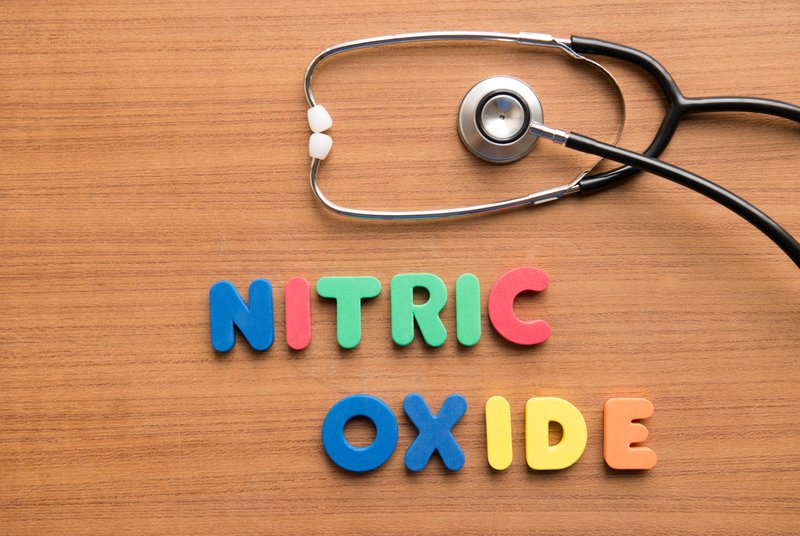
Dr. Anne: So let's dive into what the heck is nitric oxide (NO)? Can you explain that for my audience to understand. What is it?
Dr. Bryan: Sure. Well, it's what we call a signaling molecule. So it's how cells in the body communicate. But the interesting thing about this cell signaling molecule is it's a gas. Certain cell types are producing this. After producing, it's out in less than a second.
It activates a number of second messenger systems. It regulates a number of biological responses, that it's mostly known for its role in the cardiovascular system.
So it's a vasodilator. Meaning it causes the blood vessels to relax and dilate so you get more blood flow, more, better circulation, better oxygen delivery.
So, the Nobel Prize was awarded primarily for its discovery in the cardiovascular system. But now fast forward, 30 or 40 years, we now know that it's involved in our immune system. It's how our body fights off invading pathogens from viruses and bacteria.
It's a neurotransmitter in the central nervous system. And it controls protein structure and function. So, now what we know one of the most important effects of NO is oxygen uptake and oxygen delivery.
As a physician, the past three years we've experienced these chronic conditions of hypoxemia from COVID patients. So that's really the end problem with the COVID is the loss of blood oxygen saturation, hypoxemia, and then eventually death.
It's NO that controls, not only the oxygen uptake and oxygen delivery, but the vascular inflammation that occurs from the spike protein.
How Nitric Oxide Helps Blood Flow
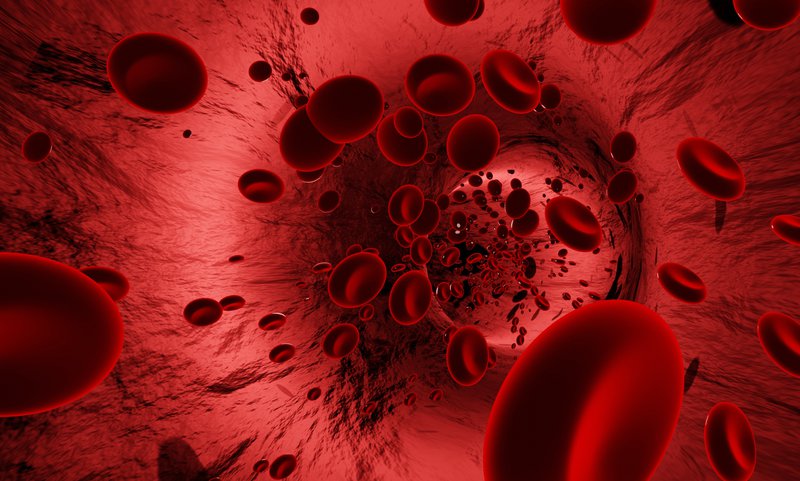
Dr. Anne: So the main thing about NO is that it host the oxygen? How does nitrous oxide involved in the blood flow? Is it part of absorbing the oxygen or is it part of helping the blood vessel dilate?
Dr. Bryan: Well, it's both. I guess they're two completely different mechanisms.
Blood Flow and Circulation
So in terms of improving blood flow and circulation, our blood vessels are kind of compliant and vasoactive. Meaning you can dilate the blood vessels then, obviously you get better blood flow and circulation after producing NO.
If you've got constricted blood vessels, then your blood pressure goes up. You lose the regulation of blood flow. So that's on the vascular control of things.
Oxygen Delivery
But in terms of oxygen delivery, we know that for oxygen to come off hemoglobin. This is a very complicated biochemical process called the Bohr effect. That when we breathe in oxygen, it binds to the iron of hemoglobin and our red blood cells. And then when that red blood cell goes from the arteries to the veins, it releases oxygen picks up carbon dioxide. Then we exhale the CO2, we pick up oxygen. This is the cardiorespiratory cycle.
But if NO is not bound to hemoglobin, oxygen does not come off. So it's part now that the cardio respiratory cycle is now considered a three gas system.
So unless you have ample nitric oxide production in the signaling aspects of NO on hemoglobin, you can give a 100% oxygen, you can put people on a mechanical vent. And we've seen that that's not always sufficient for raising their blood oxygen saturation, we have to restore the functionality of NO.
Nitric Oxide Decrease With Age?
Dr. Anne: So why do we have less nitric oxide (NO) as we get older?
Dr. Bryan: Well, to answer that question, we first had to understand how the body produces NO. Today, we know that there's two primary pathways for the production of NO.
The Nitric Oxide Synthase
One is through an enzyme found in the lining of the blood vessels in what we call the endothelial cells. These endothelial cells line all blood vessels on the arteries, the veins, the lymphatics. So it's the NO that's produced through an enzyme called nitric oxide synthase.
What we've learned is the older we get, and a lot of this dependent upon diet and lifestyle, the function of that enzyme becomes compromised. So we lose about 10 to 12% of our endothelial function per decade.
So by the time we're 40, or 50 years old, you know, we have only about 50% of the NO we had when we were younger, through that pathway. I think it's about 40 or 50, that people start to feel the effects of aging.
As you know, 50% of the men over the age of 40 self report some degree of erectile dysfunction.
Now we know that erectile dysfunction is really a symptom of insufficient nitric oxide production. So you cannot overcome ED without first fixing production of NO.
Diet: The Backup Pathway
So the other compensatory, kind of backup pathway if you will, comes through our diet. That's through what we call nitrate – nitrite – nitric oxide.
You get nitrate from your diet. It's found primarily in green leafy vegetables, things like spinach, arugula, kale. Beets are a popular item now. Then when we ingest these foods. 90 minutes after we consume these foods, the nitrate is taken up in our proximal gut, the duodenum, and then that nitrate is concentrated in our salivary glands.
So now for the next 8 – 10 – 12 hours, we're secreting nitrate in the saliva. That's providing the bacteria that live in the crypts of our tongue, a substrate to respire. Then these bacteria reduce nitrate to nitrite and nitric oxide. When we swallow our own saliva we get a burst of nitric oxide gas in the acid environment of the stomach.
Three Things That Must Happen for Diet Pathway to Work
- Get enough nitrate from our diet. We know the standard American diet is deficient in nitrate because we're not eating enough green leafy vegetables.
- Have the right oral bacteria. So people who use mouthwash, use fluoride in their toothpaste, or on antibiotics for an extended period of time, disrupt this oral microbiome. Shutting down the nitric oxide production.
- Have to have sufficient stomach acid production. There are over 200 million prescriptions written for antacids every year that shuts down nitric oxide production. Clear evidence now that people who have been on PPIs, a specific form of antacids, for three to five years have about a 40% higher incidence of heart attack and stroke.
All these steps are disrupting nitric oxide production. So now we have to start interrogating your patients. Do you use mouthwash? Are you using fluoride in your toothpaste? Are you on antacids? Whether it's prescription antacids or over-the-counter.
These antacids were never approved for chronic use by the FDA. They're only approved for acute use for gastroesophageal reflux disease. But yet, you've got patients that are taking these, been on these for 10, 12, 20 years and the consequences are tragic. I mean, increase deaths from heart attack and stroke.
How Can Nitric Oxide Synthase Become Dysfunctional?
Dr. Anne: Absolutely. And that's the one reason why I'm big a proponent of nitric oxide discussion and understand the physiology of it. Let's backtrack a little bit and talk about what is an enzyme and how does the nitric oxide synthase become dysfunctional, because of what factor?
Dr. Bryan: Well, without getting too technical, an enzyme is just a protein that performs about chemical reaction. This nitric oxide synthase enzyme was discovered to convert L-arginine, which is a semi essential amino acid, into nitric oxide gas. Then you get L-citrulline, which is another amino acid, as a byproduct.
This is a very complex, complicated five electron reaction that's both energetically kinetically unstable. Which means you're pushing a lot of things uphill to make nitric oxide through this pathway.
There's a number of things that cause uncoupling of this nitric oxide synthase. So for instance, a high glycemic diet. You can get sugar attached to the enzyme similar to sugar attaching to hemoglobin that we measure is hemoglobin A1C. But sugar sticks to these enzymes and makes them dysfunctional.
We have oxidative stress due to an inflammatory diet or just inflammation from normal occurrences in the environment. That caused the oxidation of cofactor called tetrahydrobiopterin or BH4.
And so all this leads to NOS uncoupling and insufficient nitric oxide production. We call this endothelial dysfunction. So endothelial dysfunction is now known to precede most, if not all, chronic diseases. Endothelial dysfunction, insufficient nitric oxide production, precedes the structural changes we see in the vasculature by many years, sometimes decades.
Measurement of Nitric Oxide Levels
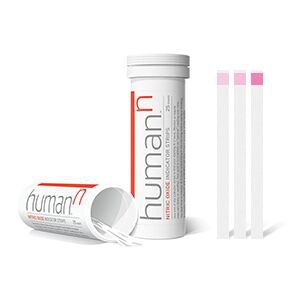
Dr. Anne: So if you are taking mouthwash, that kills the bacteria in your saliva gland? The food give you nitrate and then the saliva, not the saliva gland, the actual saliva itself, right? The bacteria in the saliva process the nitrate to nitrite. And then the nitrite goes to the stomach and the stomach acid then convert nitrite to nitric oxide.
Dr. Bryan: That's exactly right. We have to have all those processes intact in order for this process to work. That's why I developed in 2010 the saliva test strips. It's a good way you can actually measure your salivary nitrite. Now we can tell if you have the right oral bacteria.
If you lighting up that test strip and it turns bright pink, then that tells us that you have nitrate reducing bacteria presence. Provided you don't have an active oral infection. So there are some false positives on that test strip that people need to be aware of. But there are no false negatives.
Interpretating the Test Strip Result
Dr. Anne: Okay, so if you do the strip and it light up, if you're deficient, what does that tell you?
Dr. Bryan: Well, it tells us that there's no nitrite in your saliva. That's basically all it tells us.
Then you got to kind of ask them questions of why is that? Is it because you have endothelial dysfunction and your NOS enzyme is uncoupled? Is it because you're not getting enough nitrate from your diet? Or is it because you're eating a lot of vegetables, but you don't have the right oral nitrate producing bacteria to convert it?
Then you're nitric oxide deficient. So these are all questions you have to interrogate. But basically, all the test strip tells us is that you have very little or no nitrite in your saliva.
But the consequences of that tell us that you're nitric oxide deficient and typically these people are, you know, have ED, they have high blood pressure, and they're on a very slippery slope to developing chronic disease.
The Best Nitric Oxide Supplement
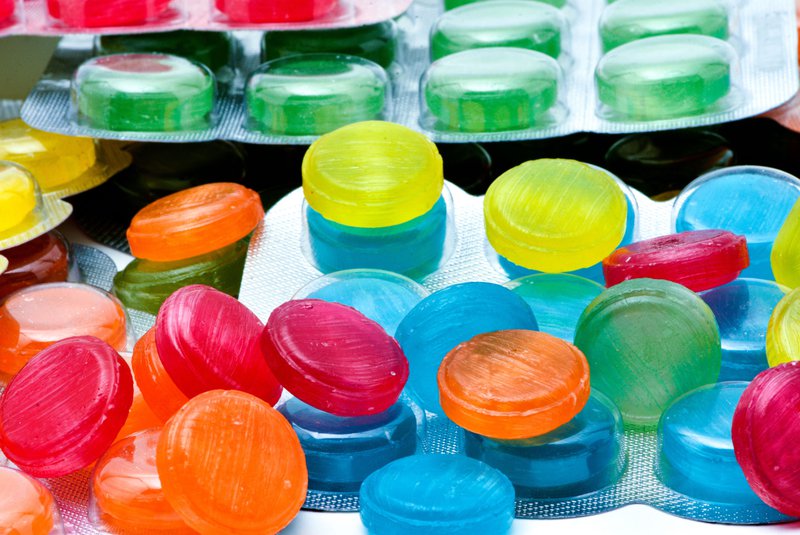
Dr. Anne: We discussed about the two ways your body make the nitric oxide and how you become deficient. So what what is a good supplement? Because we know that when you type in nitric oxide on on Google there is 10,000 searches that shows up. Which one do you recommend?
Dr. Bryan: I tell people that to increase nitric oxide production, you got to do two things.
Stop doing the things that disrupt it and start doing the things that promote it.
We've talked about the disruptors. If you're using mouthwash, you have to stop. If you're using fluoride in your toothpaste, you have to get rid of fluoride. Fluoride is an antiseptic and kills your thyroid function, it's a neurotoxin. If you're on antacids, you have to figure out somehow work with your physician and get off these antacids.
Now once you do that, you can moderate physical exercise is effective, throw in some more green leafy vegetables. Infrared saunas and 20 to 30 minutes of sunlight a day. All these promote nitric oxide production.
But what I've learned over 25 years in science is, by human nature, that people want a quick fix.
Most people aren't willing to change their diet and lifestyle, they want to take something. So we created some some nitric oxide products over the past decade.
Our prevailing principle and guideline is if your body can't make nitric oxide, then we have to do it for you. If your body can't make nitric oxide, we have to do it for you. We understand why you're deficient in nitric oxide. We can correct and restore the function of the nitric oxide synthase enzyme, and restore the body's ability to make it on its own.
Nitric Oxide Lozenge
We've done that through my latest product, this is a lozenge. It's not a pill you can swallow. It's not a liquid you can take. What we do is unlike anything that's ever been done in nitric oxide field, or really in the history of medicine. My claim to fame is that was the first to make a solid dose form of a bioactive gas.
We make a lozenge, you put that lozenge in your mouth, it's designed to dissolve over five to six minutes. As this lozenge is dissolving, it generates nitric oxide gas, about 20 to 30 parts per million. We can quantify it, we can verify the nitric oxide coming off. As the lozenge is dissolving, we can see dilation of it.
We're generating nitric oxide gas, it's vasoactive. But then about four hours later, if you measure endothelial function, or what's called flow mediated dilatation, we see about a 15% improvement in the endothelial function.
Now we know how to recover the enzyme. We prevent the oxidation of tetrahydrobiopterin. We're improving the body's ability to make nitric oxide in the endothelium.
So those two things have really never been done before and we have the only product technology that does that. So the lozenge, it's NO2U.
Beet Powder
We also create a beets have been a popular item for the past 10 to 15 years. I test all the beet products on the market. 99% of the beet products don't do anything in terms of nitric oxide. They're what we call dead beets. They do not generate nitric oxide gas.
Most recently, we brought to market a product called NOBeets. We ferment the beets, take the oxalates out of the it, you don't have to worry about kidney stones. Then take the beet pulp that the color the beet taste out. We add electrolytes because most Americans are dehydrated at the cellular level. Then we add mitochondrial ATP.
So this product is a powder, you put it in water. As soon as it gets into solution, it start generating nitric oxide gas.
This is designed to be taken as a shot, put it in water, mix it up, and then take it immediately, and then we're generating nitric oxide throughout the entire body.
Infrared Light To Promote NO Production?
Dr. Anne: I wanted to ask you this, how does infrared sauna or infrared light in the sun help promote more nitric oxide?
Dr. Bryan: Well, there's certain wavelengths and frequencies so both from the UV side and we use this in the research lab. You can actually use ultraviolet light to cleave nitric oxide that's bind to assisting time.
When nitric oxide is produced, it reacts with with sulfur compounds on proteins or glutathione, and binds to it. UV light will actually liberate that nitric oxide and make it vasoactive.
Then the infrared side it can bind the metals also. The frequency of the energetics of infrared, and it's really full spectrum infrared, will knock nitric oxide off of metals. But the problem is, if you're nitric oxide deficient, you have less of these photo labile stores of nitric oxide to be liberated by the sunlight.
I'm a big fan of infrared saunas, I have one in my house. But before I go into the sauna, I take nitric oxide. Now that red light therapy is actually more effective at liberating nitric oxide, you're gonna get more therapeutic benefits of the infrared light therapy.
Organic Foods Have Less Nitric Oxide?
Dr. Anne: You also mentioned in one of your webinars that organic food has less nitric oxide. Why is that? I find that very interesting.
Dr. Bryan: We compared conventionally grown vegetables to organically grown vegetables and find that organically grown vegetables have on average, about five to 10 times less nitrate.
Most consumers have no idea what organic means. They just been taught in the media that organic is healthy. There's certain aspects of organic that you obviously can't add herbicides or pesticides to organic vegetables. But the other restriction is nitrogen based fertilizers.
This restrictions on adding standardized nitrogen to the soil of organically grown vegetables. But yet if these soils are deficient in nitrogen in the form of nitrate, then these organically grown vegetables have less nitrate to assimilate. So then those organically grown vegetables have less nitrate when we consume them. We typically don't get enough nitrate from organically grown vegetables.
Dr. Anne: I buy organic all the time. So then what that means if I buy my leafy greens, I shouldn't be buying organic, right?
Dr. Bryan: I think it's a balance. Organic is good because you don't want to be exposed to glyphosate, herbicides, or pesticides because those are toxic, really damaging chemicals on our food in our food supply.
The best approach is if you can find a farmers market that uses kind of some common sense approaches where you're adding nutrients to the soil, but yet, you're not adding herbicides or pesticides to your crop. So buy local don't buy vegetables that have herbicides or pesticides on them. But you have to have nitrogen in the soil in order to get enough nitrate to generate nitric oxide gas.
Daily Nitric Oxide Requirement
Dr. Anne: How much optimally do you need to have nitric oxide in a day for healthy? For someone that has a good saliva microbiome, have good stomach acid production, and eat well and so forth, How much will you opt?
Dr. Bryan: That's very difficult to quantify because it depends upon how much nitrate you're getting in the activity and functionality of the bacteria.
But in terms of how much is produced by the enzyme, years ago, you can do radio labeled isotope experience. We can take radio labeled arginine and then look at how much of that radio labeled arginine is converted to citrulline. Through those radio labeled isotope studies, we know the flux of nitric oxide, we know how much nitric oxide a healthy person would make in 24 hours.
For us, in the research lab, that was kind of the basis of what we needed to produce in the form of a technology, because you never want to give the body more than what it's designed to experience under normal metabolic processes.
So that's kind of been our guiding principle is. Let's generate that same amount over a certain period of time through the lozenge.
Nitric Oxide Lozenge Before Sex
Dr. Anne: I just got a great idea talking to you. So before you have sexual activity, maybe 60 minutes, before 90 minutes, before take the lozenge. What are your thoughts on that?
Dr. Bryan: These lozenges are quick-acting. I mean, you could do it 5, 10, 15 minutes before sexual activity, because we see peak plasma concentrations within 15 or 20 minutes of taking the lozenge.
Either is going to be very effective because they're both rapid onset rapid action. So 5, 10, 15 minutes before sexual activity, take the lozenge, take the beets, they're going to dilate your blood vessels and improve circulation and blood flow and improve your performance on all of this.
Latest Research on Nitric Oxide
Dr. Anne: Oh my god. We just found out a way now to really accentuate the sexual experience that not only your lifestyle modification and treatment with PRP if needed, but just take the lozenges.
Again, take these products with the advice or talking with your doctors as well. If you're on multiple antihypertensive or blood pressure medication, you really do need to watch because you don't want to have a rapid decrease in your blood pressure and also causing less oxygen as well. Always discuss with your doctor about it.
So before we go, any latest research that come out about nitric oxide and what will be your recommendation for like either a morning routine or a biohack to increase nitric oxide?
Dr. Bryan: I think for me, the most exciting thing is our drug discovery program. We've just finished a phase three clinical trial for COVID.
The most important thing from that is this drug is extremely safe. There were no, we treated over 600 patients, not a single adverse event or side effect, not even a headache.
So now the FDA has allowed us to go straight into phase three clinical trials on all our other drug programs so for ischemic heart disease. So for me I'm trying this drug discovery chemist and we've been very successful in bringing to market nutritional products, and skincare products, and dietary supplements.
But for me, the way we transform healthcare and really leave a lasting legacy on medicine is developed safe and effective drugs that physicians can now use to treat their patients for a number of different chronic conditions.
Nitric Oxide and Biohacking
I think nitric oxide will be the way we treat patients for the next 100 years. So for me that's the most exciting thing coming out of research for biohacking.
That's a hot topic now and people are doing these bio hacks.
For me, this my own personal routine, I do a 16-hour fast every day. I eat my last meal of the day at 5:00 or 5:30 in the afternoon, I don't eat again until noon the next day.
The scientific evidence is clear that intermittent fasting and caloric restriction improves longevity, improves quality of life.
- Have a hyperbaric oxygen chamber in my home, I use hyperbaric two to three times a week.
- Sit on infrared sauna everyday that I'm home or from traveling. I try to find a hotel or a spa that has infrared saunas.
- And then exercise. I move, I live on a working ranch, I work cattle, I ride horses. I'm always active.
- And then try to eat sensibly. Not overeat, but eat a balanced diet in moderation.
Dr. Anne: So it's really back to the basic diet. What I call:
You eat what the earth gave you.
I tell my patients, the earth didn't give you crackers in a bag. Eat what the earth give you. Eat the caveman diet and exercise, and even just walking an hour a day, and be outside. Be outside in the sun, doing walking.
Additional Resources
Nitric Oxide Supplements
- NO2U – Use code “themodernman” for 10% off and FREE shipping!
- N1O1 – Use code “themodernman” for 10% off and FREE shipping!
You can connect with Dr. Bryan on Instagram and Twitter. Learn more about nitric oxide by going to https://drnathansbryan.com/
Want to regain control of your sex life? Join the Modern Man Club and start your road to full recovery and community.
Reveal the FREE treatment most men ignore that solves thousands of erectile dysfunction cases every year, plus the 5 biggest mistakes you must avoid if you want to say goodbye to your ED. Uncover it all in my free eBook available to download now: The 5 Common Costly Mistakes Men Make When Facing Erectile Dysfunction.
